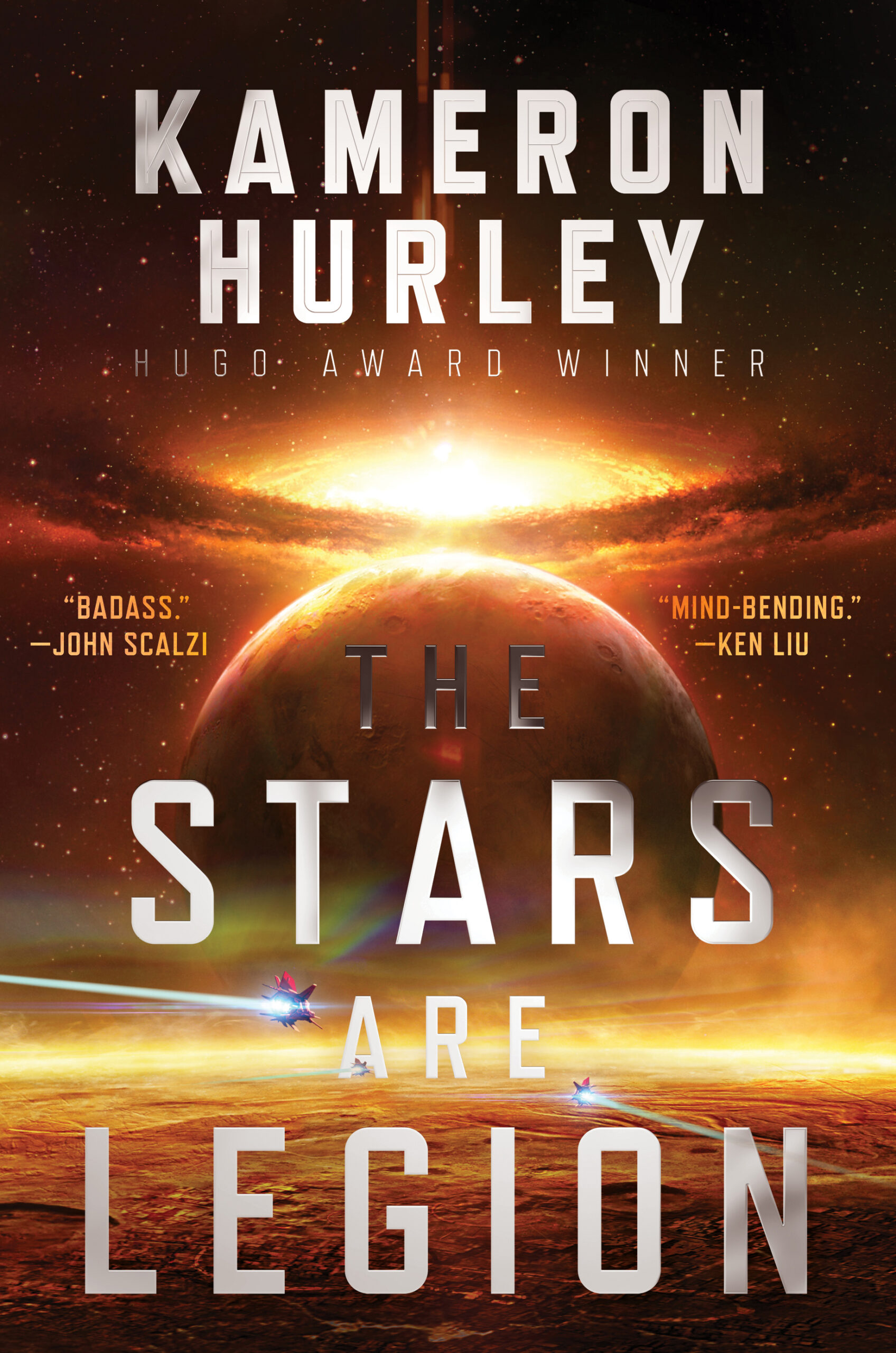The Stars Are Legion, by Kameron Hurley
Kameron Hurley does not write pretty stories. But they are pretty darned amazing.
Her space opera, The Stars Are Legion, is somewhat easy to summarize: in a system of decaying worldships known as the Legion, a struggle is underway to take control of the hostile world of Mokshi – the only ship to have broken away from the Legion in a failed bid for freedom. Warring families from the other powerful worldships of Katazyrna and Bhavaja strategize, bludgeon, betray and plot for supremacy, but it is only when warrior Zan and her motley collection of companions undergo an epic journey through the stronghold of an ascendant world in order to save Jayd, the royal sister bartered to the opposition family, that we learn what really is at stake for the Katazyrna, the Bahavaja, and indeed, the entire Legion.

While that summary is completely true, it also is absolutely misleading. Well, not misleading, but incredibly inadequate for the tale that Ms. Hurley weaves.
As with many of Ms. Hurley’s other novels – the Bel Dame Apocrypha (God’s War, Infidel, Rapture) and the Worldbreaker Saga (The Mirror Empire, Empire Ascendant, The Broken Heavens) – you cannot divest her stories from the powerful worlds that she creates. It is imperative that one grasp her characters’ realms in order to have even a modicum of understanding of the perils they face and the obstacles they must overcome.
But these worlds which Ms. Hurley builds are not simple, nor are they easy to embrace. The basic framework may be familiar, but the environment, the creatures, the very trappings of her worlds are bizarre and often uncomfortable. (Bioluminescent bugs, anyone? Multi-headed, multi-limbed witches, perhaps? Oozing, fibrous walls? Tentacles and pustules and bloat, and gaseous bodies and leaking flesh?) Plus, the ethos of her worlds, and the cultural attitudes, can run counter to our standard beliefs and comfortable assumptions, but sans any kind of political agenda or moralizing framework against which we might gain purchase. Kameron Hurley is not making any statements in building her worlds as she does, but that these worlds exist is a statement in and of itself.
For instance, in The Stars Are Legion, there are humans but no men – this world is made up entirely of women. Men simply do not exist, not in thought, word or deed. And yet, pregnancy is an expected condition, a part of their physiology that figures prominently in the world and in the novel. And those pregnancies (which can occur on a cycle, be delayed due to “treatments”, or controlled for political maneuvering) do not always – in fact, do not often – involve birthing children. Not complete ones, anyway. And while this may sound absurd or even off-putting to a reader, it is such a natural and accepted part of this world that one cannot question it (although it’s still possible – perhaps even expected – to find it off-putting).
There is no “anti-male” treatise being espoused in The Stars Are Legion. Nor are pregnancies in the novel any kind of statement of female empowerment or judgment on biological issue. There does not need to be. That the story exists is statement enough, for as powerful as Ms. Hurley’s worlds are, they merely mirror the dramatic impact of the stories that take place within them.
Pretty powerful stuff. And that barely touches the surface of what transpires in this incredible, strange, thought provoking, entertaining book. I can’t even begin to describe it to you, I couldn’t do it justice. But I can urge you to read this book, if you feel open to it.
No, it’s not pretty. But yes, it’s pretty darned amazing.
—Sharon Browning

